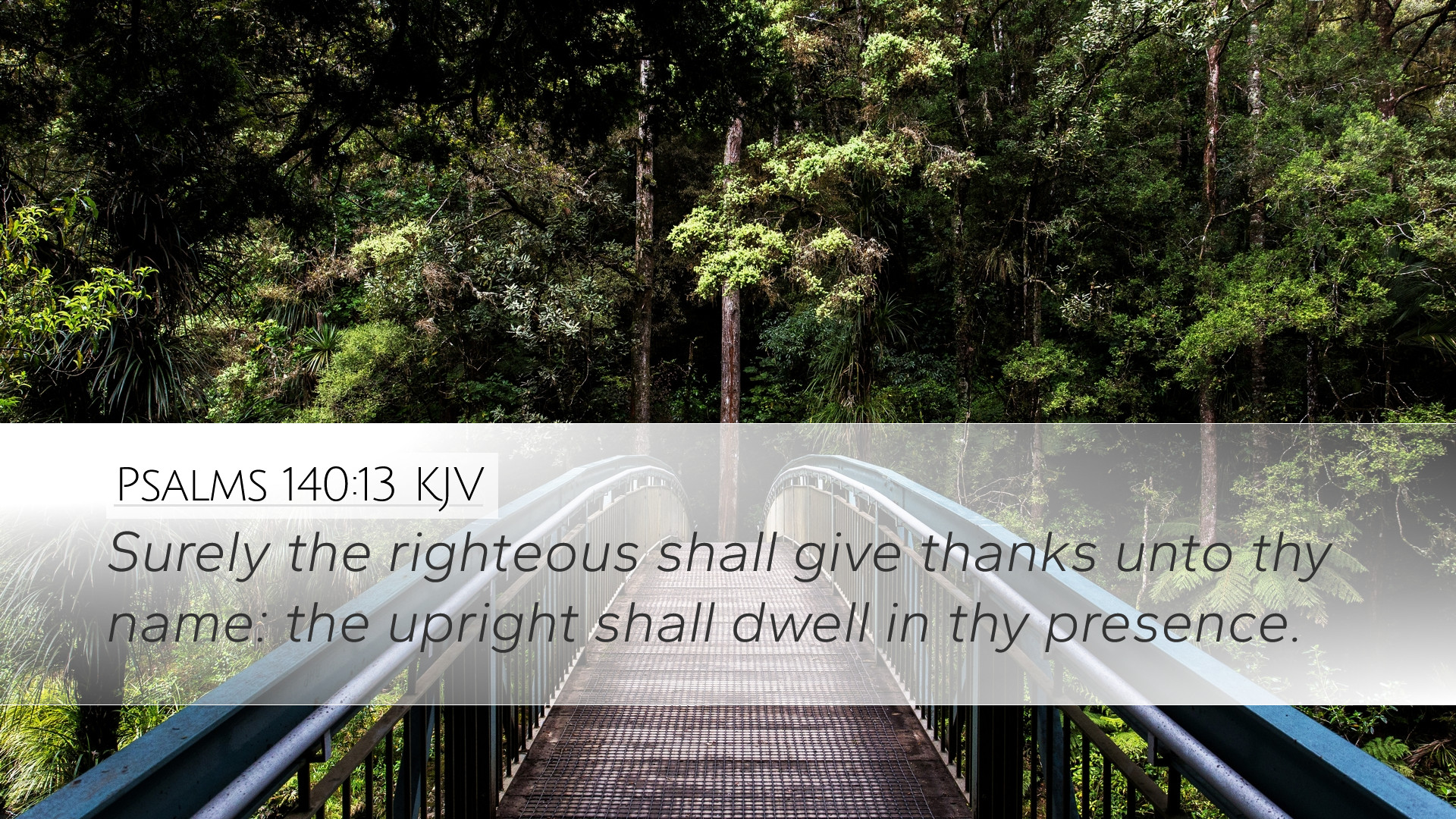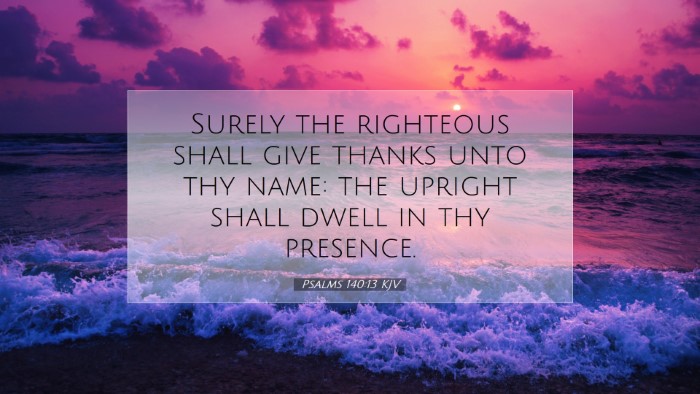Psalms 140:13 Commentary
Psalms 140:13 states: "Surely the righteous shall give thanks unto thy name: the upright shall dwell in thy presence." This verse serves as a profound conclusion to the psalm, emphasizing the relationship between righteousness, gratitude, and the presence of God. In this commentary, insights from various public domain sources will be combined to elucidate its meaning and implications.
Contextual Overview
This psalm is attributed to David and is characterized by themes of prayer for deliverance from the wicked. David pleads for assistance in times of trouble and expresses confidence in God's righteous judgment. Within this context, verse 13 underlines the contrast between the fate of the wicked and the reward of the righteous.
The Righteous and Their Gratitude
Matthew Henry emphasizes the certainty and necessity of gratitude among the righteous. He remarks that "the righteous shall give thanks unto thy name." This is not merely a future expectation but a present reality. The act of giving thanks is intrinsic to the life of a believer, flowing from an understanding of God’s mercies and provisions.
Henry further notes that "the upright shall dwell in thy presence," suggesting that a life of integrity not only leads to a closer relationship with God but also ensures a sanctuary for the soul amid life's adversities.
The Upright: Characteristics and Rewards
Albert Barnes provides additional insights into what it means to be "upright." He defines the upright as those who are in right standing with God—whose hearts and lives reflect divine standards. The upright are distinguished from the wicked by their righteous actions and motivations.
Barnes elaborates that the promise of dwelling in God's presence is both a present comfort and a future hope. He writes, "They who serve God now shall be with him hereafter." The communion enjoyed by the righteous serves as a foretaste of the eternal fellowship with the Lord.
Presence of God: Significance and Application
Adam Clarke expounds upon the significance of God’s presence mentioned in this verse. Clarke notes that for the righteous, dwelling in God's presence is a source of joy, peace, and spiritual sustenance. He states that "to dwell in His presence is to enjoy the light of His countenance."
Furthermore, Clarke emphasizes the transformational nature of this presence, suggesting that "the righteous are not merely passive recipients of God’s grace, but active participants in a divine relationship." This relationship brings about a life that not only reflects God’s character but also influences those around them.
Theological Implications
This verse provides a rich foundation for understanding the nature of salvation and the believer's relationship with God. Theological themes woven into this scripture include:
- Divine Justice: The contrast between the righteous and the wicked illustrates God's justice and the ultimate fate of humanity.
- Community of Faith: The verse implies a communal aspect of faith where thanksgiving and uprightness are core values among believers.
- Assurance of Salvation: The promise of dwelling in God's presence reassures believers of their eternal security and fellowship with the Lord.
Practical Applications for Believers
From this verse, believers can glean several practical applications:
- Cultivating a Heart of Thanksgiving: Emphasizing the importance of gratitude in all circumstances as a testimony to God’s faithfulness.
- Striving for Uprightness: Encouraging a life that seeks to honor God through righteous actions and moral integrity.
- Encouragement in Trials: Finding solace in the promise of God's presence during difficult times, strengthening faith and perseverance.
Conclusion
Psalms 140:13 encapsulates the essence of a life lived in communion with God—marked by gratitude and righteousness. Through the insights provided by Matthew Henry, Albert Barnes, and Adam Clarke, we understand that the righteous are called not only to reflect God's character but also to actively partake in the rich fellowship He offers.
As we meditate on this verse, may we aspire to dwell in His presence, continually thanking Him for His goodness, and embodying the uprightness that brings honor to His name.


